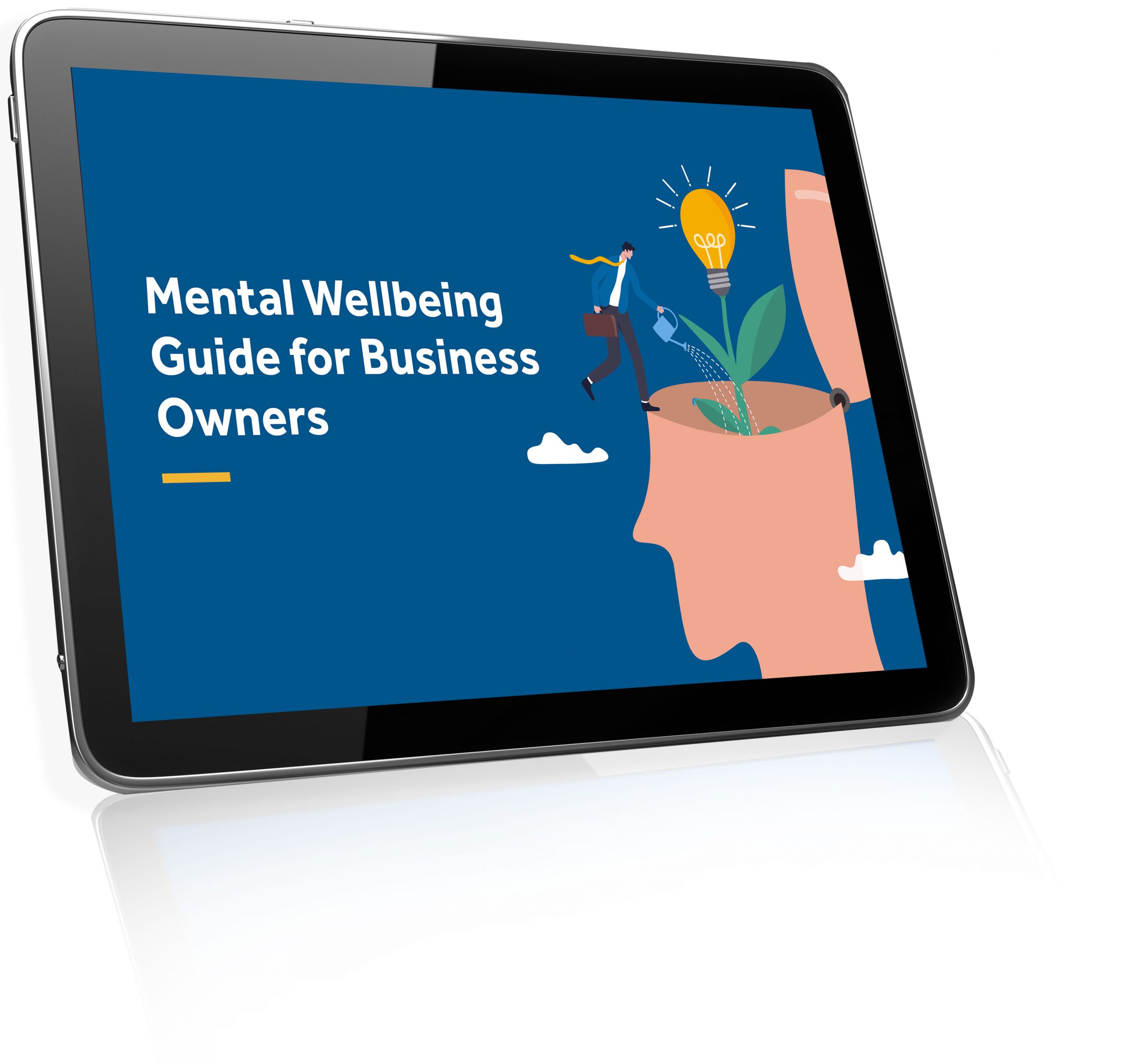
Nearly one in four New Zealanders have experienced poor mental wellbeing. World Health Organization (WHO) determines the scale of mental wellbeing based on multiple factors. According to the WHO scale, people aged 35-44 had a low mean mental wellbeing score last year. Mental wellbeing encompasses good mental health and overall sense of satisfaction. While several factors may contribute to poor mental health, work environment plays a significant role in determining wellbeing and how you cope with difficult situations. Considering that 60% of employees’ waking hours and lives are spent at work, it is important to manage mental wellbeing within your workplace.
The way employees think, feel, and behave can impact everything from productivity and communication to their ability to assess and maintain safety in the workplace. An unhealthy work environment or a workplace incident can cause considerable stress and exacerbate, or contribute to, the development of mental illness. If employees are feeling isolated or hopeless it can contribute to depression and other mental illnesses.
Poor mental health costs to employers
Mental health problems affect employees, employers, and the lives of their loved ones and communities as well. Poor mental health costs the New Zealand economy approximately 4-5% of the GDP annually.
Depression, anxiety, and other mental health issues can also cost employers a lot of money. The Center for Prevention and Health Services estimates that mental illness and substance abuse issues cost employers between $79 and $105 billion annually in indirect costs. Absenteeism, decreased productivity, and increased healthcare expenses are just a few of the ways mental health problems cost employers money. Mental illness causes more days of work lost and work impairment than many other chronic conditions such as diabetes, asthma, and arthritis.
Research indicates that job stress and other work-related psychosocial hazards are emerging as the leading contributors to the burden of occupational disease and injury. The Health and Safety in Employment Act 2015 requires employers to adopt a systematic approach to identifying hazards, assessing which are the significant hazards, and controlling these hazards through eliminating, isolating, and/or minimising the hazards. The Act makes specific reference to stress as a cause of harm.
Living with mental illness
People who have a mental health condition face lower rates of employment and twice the rates of unemployment compared to people without a mental health condition. Further more, since benefits in New Zealand are means-tested, the share of people with mental health condition receiving social benefits is lower compared to other OECD countries. The large employment and income gap also increases the risk of poverty for New Zealanders with a mental health condition. Within this disadvantaged group, there are people and communities that face more challenges. Communities such as the LGBTIQ+ and Māori are at higher risk of discrimination and being disproportionately affected by mental health challenges and lack of resources.
Poorer outcomes for some groups, especially Māori people indicate the need for mental health and work policies to be culturally and community led. Importantly, workplaces need to create healthy environments and resources for employees and destigmatize the conversation around mental health and wellbeing.
Mental Health Awareness Week
Mental Health Awareness Week was from 26 September- 2 October in New Zealand. This week provides a overall starting point for employers to integrate mental health and wellbeing as a part of the culture. Since 1993, the Mental Health Foundation has utilised this week to ensure New Zealanders are open to having conversations around positive mental health with their friends, colleagues, and family.
What can employers do?
An employee may develop mental illness or suffer from poor mental health prior to employment or during employment. It is generally presumed that a worker’s mental illness or disorder can develop outside the workplace. Toxic workplaces or challenging work environments can lead to stress, anxiety, or depression.
Business owners can not ignore the importance of mental health and wellbeing at the workplace.
Managing mental health at the workplace requires principles of good management, including: talking to them openly and honestly and having a good overview of what support, advice and assistance you or your company can provide.
Create a healthy environment
Many healthcare professionals will advocate that the physical environment plays a large role in shaping mental health. It is important for employers to evaluate the lifestyle they promote among employees. Expecting employees to work 80 hours a week or insisting people respond to work emails from home are just few examples that can cause workplace stress.
Some ways to foster a healthy workplace include encouraging exercise, allowing for breaks where employees can socialise, and stress reduction workshops. You can also hire a professional to teach mindfulness or offer free access to yoga classes and mindfulness resources.
Leave options for workplace stress
An employee with workplace stress that amounts to an illness may take sick leave. In this case, the ordinary conditions for sick leave apply.
In addition to sick leave, it might be possible for the employee to negotiate further leave for stress. As this is not a legal entitlement, it is up to the employer whether or not further leave is provided. This can help to make sure the employee is both healthy and productive. The length of the leave and whether the leave is paid or unpaid will have to be negotiated. Stress leave is not a separate category of leave.
Implement a mental health policy and procedure
All employers and managers have an obligation to take appropriate steps to eliminate and minimize the health and safety risks in the workplace.
Research has demonstrated that developing combined systems incorporating individual and organisational strategies is an effective and relevant way to help fight work related stress and to support employee wellbeing.
A dedicated, documented ‘mental health return to work policy and procedures manual’ can come handy in this situation. Key aspects of this document could include:
an organisational commitment to early return to work, adjusting the role to assist the worker in returning at least part time rather than prolonging sick leave to play it safe
an outline of how supervisors should seek advice when an employee discloses a mental health issue, including what actions they should take, when they should take them and what will be supported by an organisation
procedures and tools for keeping contact with staff on sick leave, including when and how employees should notify absence and what is expected from the employee while on sick leave. The employee feels valued and maintains connection while the employer is aware of the reasons for absence
clarify the expectations, roles and responsibilities of all parties involved in the return-to-work process, including employee, doctors, insurer, employer and so on
clarify which reasonable adjustments can be made to retain an employee, including time off to attend appointments
define responsibilities for putting a return-to-work plan into action and reviewing its progress, including arrangements for return-to-work interviews
rehabilitation plan to allow for a staged return to work
Support employees in addressing mental illness
Supporting mental wellbeing and treatment can ensure that employees are able to perform at their best. Designed to promote productivity, employee assistance programs (EAP) are focused on delivering barrier-free access for mental health services or resources. By eliminating eligibility requirements and the counselling sessions offered at no cost to the employee, members can access services without cost concerns. If you provide your employees with the support and tools they need to tackle mental illness, it will help them cope with challenges and improve their quality of life.
EAPs provide assessment and services for addressing a range of concerns that interfere with employees’ well-being and work performance. EAP professionals may also provide training, resources and consultation to managers and supervisors on organisational concerns.
Benefits to the workplace
The New Zealand Institute of Economic Research has found that investing in employee wellbeing can make a business more profitable. For every dollar a small business owner invests in wellbeing initiatives for their staff, they can expect to see a return of up to 12x within a year. Building a mentally healthy workplace has essential benefits such as:
Reduces stress
Improves morale
Reduces costs associated with employee absence
Improves productivity
Achieves staff loyalty
Improves retention
Avoids time and risk associated with employee claims
Offers substantial opportunities to affected communities
It’s okay not being okay
Nearly half of all small business owners work six or seven days to keep their business running. Around 88% of employers miss out on family time and personal lives or commitments. They are unable to deal with emotions and feelings associated with the responsibility of running a business. They find it difficult to talk to anybody since they are responsible for the wellbeing of the employees.
If you want to promote positive mental health at the workplace, it starts with you. Business owners need to firstly take care of their wellness. They also need to learn how to cope with the stress of running a business.
How can Employsure help you?
Employsure has worked with 6,000 business owners in New Zealand. We understand the obstacles facing business owners and employers and support them with employment relations and work health and safety. Call our 24/7 Advice line today to talk to our representatives.
This document contains general information and should not replace medical advice. Please contact a medical professional for any advice relating to mental health.

Mental Wellbeing Guide
Being a business owner can be overwhelming! There’s a lot to be across, from managing day-to-day operations, paying wages, dealing with rising business costs, hiring and managing staff, and ensuring you have the right processes and documents in place. These challenges can have a real impact on your mental wellbeing. While you’re looking out for the wellbeing of your staff, who’s looking out for yours?
Download our FREE Mental Wellbeing Guide for Business Owners today!
Get Workplace Advice Now
Call Our Team of Expert Advisers Who Will Help You with Your Workplace Questions.
